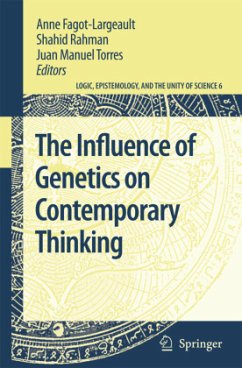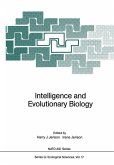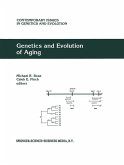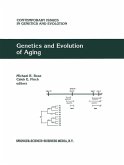This volume reflects on the effects of recent discoveries in genetics on a broad range of scientific fields. In addition to neuroscience, evolutionary biology, anthropology and medicine, contributors analyze the effects of genetics on theories of health, law, epistemology and philosophy of biology. Social and moral concerns about the relationship between genetics, society and the individual also figure prominently. Genetic discoveries fuel central contemporary public policy debates concerning, for example, human cloning, equitable access to healthcare or the role of genetics in medicine. Perhaps more fundamentally, advances in genetics are altering our perception of human life and death.
An interview with François Jacob by Anne Fagot-Largeault opens the volume. In this interview, Jacob, who shared a Nobel Prize with André Lwoff and Jacques Monod for their discoveries concerning genetic control of enzyme and virus synthesis, addresses many of the central methodological epistemological and ethical questions covered in the volume. The dynamic interdisciplinary character of this volume makes it relevant to scholars from many disciplines, from biology, philosophy and the social sciences.
An interview with François Jacob by Anne Fagot-Largeault opens the volume. In this interview, Jacob, who shared a Nobel Prize with André Lwoff and Jacques Monod for their discoveries concerning genetic control of enzyme and virus synthesis, addresses many of the central methodological epistemological and ethical questions covered in the volume. The dynamic interdisciplinary character of this volume makes it relevant to scholars from many disciplines, from biology, philosophy and the social sciences.
From the reviews:
"This ambitious book aims to survey the influence of genetics and molecular biology on contemporary thought quite generally. [...] Highlights of the first section include an excellent introduction to what genetics has taught us about human origins by Francisco Ayala and his group of Spanish collaborators. [...] The section devoted to philosophy of science is particularly strong."
Paul Griffiths, University of Sydney, NSW, Australia in Metascience
"Organized in three main sections: 'Genetics and the Life Sciences'; 'Genetics and the Philosophy of Science: The Reductionism Debate and Beyond'; and 'Genetics and the Ethical, Legal and Sociological Debate', these contributions are more informative about what other disciplines have to say about genetics ... . those who keep reading will be rewarded. When judged upon their merit as stand-alone pieces ... the chapters are highly stimulating." (Medicine, Health Care and Philosophy, Vol. 11 (3), 2008)
"This ambitious book aims to survey the influence of genetics and molecular biology on contemporary thought quite generally. [...] Highlights of the first section include an excellent introduction to what genetics has taught us about human origins by Francisco Ayala and his group of Spanish collaborators. [...] The section devoted to philosophy of science is particularly strong."
Paul Griffiths, University of Sydney, NSW, Australia in Metascience
"Organized in three main sections: 'Genetics and the Life Sciences'; 'Genetics and the Philosophy of Science: The Reductionism Debate and Beyond'; and 'Genetics and the Ethical, Legal and Sociological Debate', these contributions are more informative about what other disciplines have to say about genetics ... . those who keep reading will be rewarded. When judged upon their merit as stand-alone pieces ... the chapters are highly stimulating." (Medicine, Health Care and Philosophy, Vol. 11 (3), 2008)








